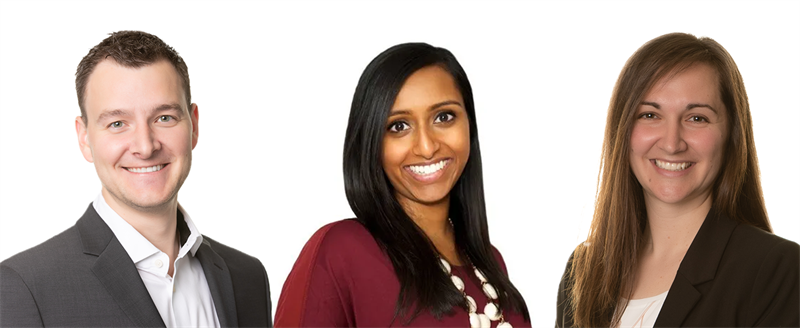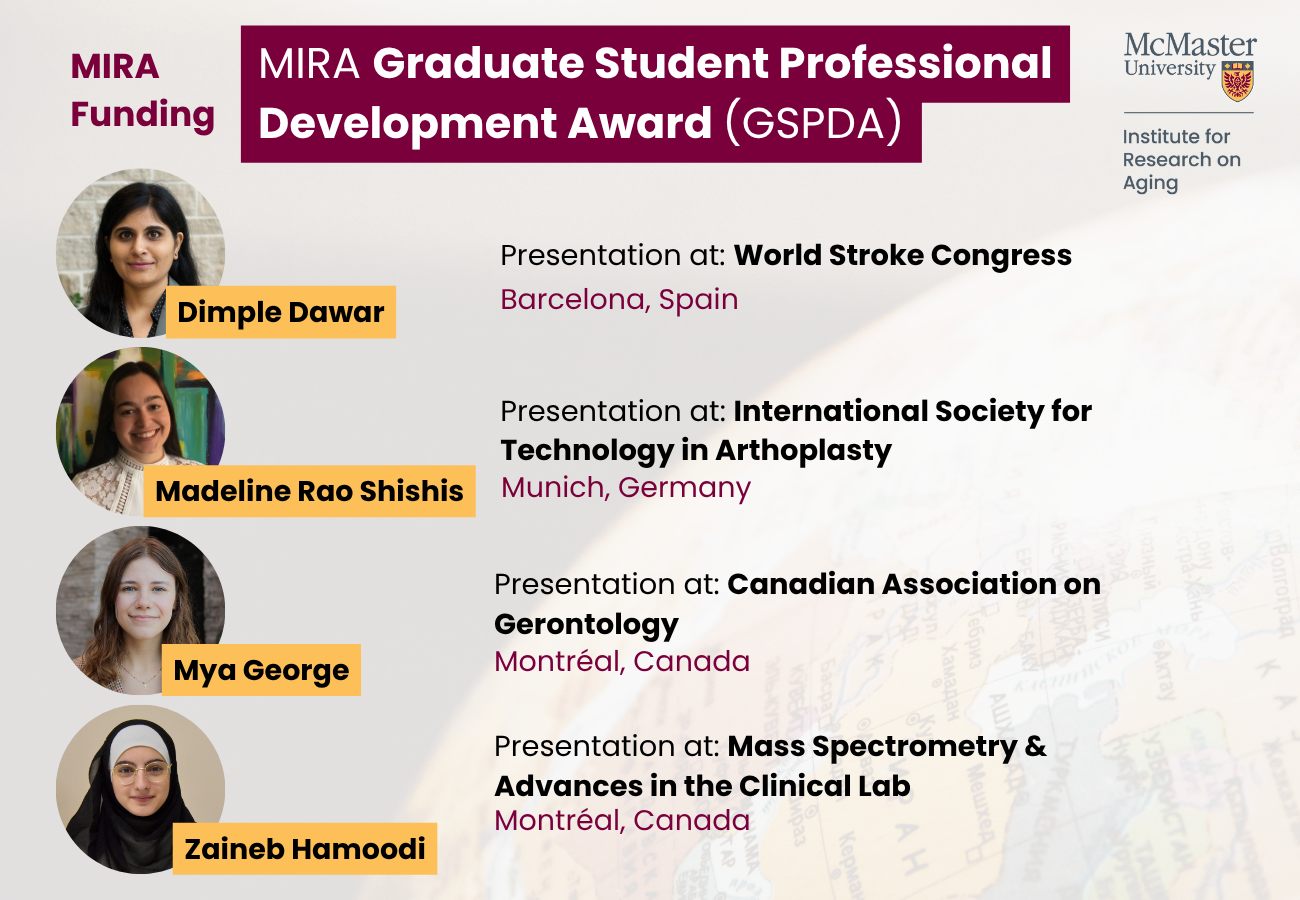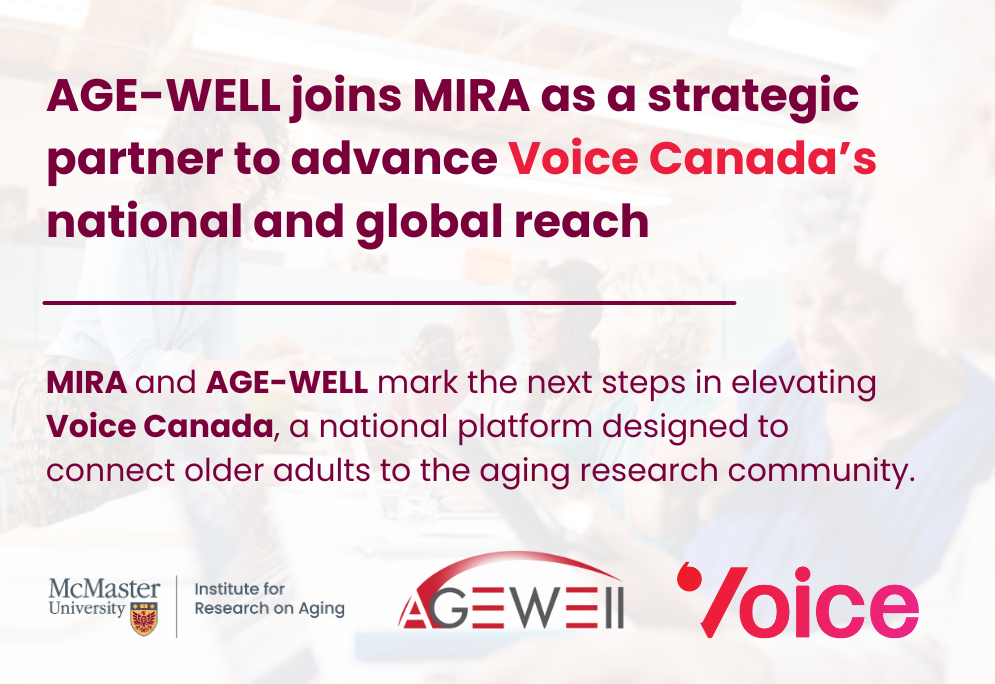Three early career researchers with the McMaster Institute for Research on Aging (MIRA) were recently awarded funding through the Canadian Frailty Network (CFN) Springboard Grants Program. Drs. Dylan Kobsar and Ashwini Namasivayam-MacDonald were each awarded CFN Springboard Grants and Dr. Jenna Smith-Turchyn received a Springboard Grant jointly funded by CFN and Sepsis Canada. These grants, each nearly $100,000 plus additional partner contributions, support early career researchers conducting impactful research aimed at helping older adults living with frailty as well as their family and friend caregivers.

From left to right: Dylan Kobsar, Ashwini Namasivayam-MacDonald and Jenna Smith-Turchyn
Dylan Kobsar
Integrating Biomechanical Technologies with Orthopaedic Clinics to Improve Surgical Outcomes for Knee Osteoarthritis
The end-stage treatment for osteoarthritis is total joint replacement, a procedure that can be very impactful in the lives of many older adults. However, until recently there has not been a simple in-clinic way to assess how people’s legs move and how they carry the weight of a person’s body — key information that can support important treatment decisions. In this study, Kobsar and colleagues will outfit the hallway at the Fracture and Orthopedics Clinic at St. Joseph’s Healthcare Hamilton with an array of movement tracking cameras able to gather critical mobility data from participants directly following their meeting with clinicians. Previously, these assessments were only possible in specialized labs external to the hospital. To add depth to this information, data about the participant’s mobility in daily life is captured with wearable sensors. Together, this data gives clinicians a complete picture of the participant’s joint function to provide better, more tailored treatment.
MIRA is pleased to support this project though a Labarge Catalyst Grant in Mobility in Aging.
Ashwini Namasivayam-MacDonald
Understanding how frailty and physical function are related to swallowing impairments in older adults
Understanding how to properly manage swallowing difficulty is a critical issue for older adults, with up to one third of older adults experiencing swallowing difficulties. When not properly managed, these challenges can lead to a range of negative impacts on a person’s nutrition, health and quality of life. Older age and frailty may both be causes of swallowing difficulties, but no studies have used objective measures to assess swallowing and frailty. Namasivayam-MacDonald and colleagues will perform assessments of swallowing, frailty, physical function and physical activity with a group of older adults to understand the connections between these key factors.
MIRA is pleased to support this project though MIRA/Labarge Centre for Mobility in Aging matching funding.
Jenna Smith-Turchyn
Understanding the intersection of frailty, sepsis and cancer: Rehabilitation to improve survivor outcomes
The interactions between frailty, sepsis, and cancer are not well understood. Neither is the potential for rehabilitation to address issues arising around these conditions. I-CaRe is the beginning of building a deeper understanding of the intersection between these conditions and the role of rehab services for addressing them.
In the I-CaRe project, Smith-Turchyn and colleagues will first review the existing literature on the connections between frailty, sepsis and cancer. Following this phase, the researchers will work with patient, caregiver, and healthcare professional knowledge users to create education modules that will share, in a meaningful way, information about frailty, sepsis and cancer and related rehabilitation.
McMaster researchers applying for external, competitive funding calls that require a matching component can apply for MIRA/LCMA Matching Funding for External Competitive Calls.

